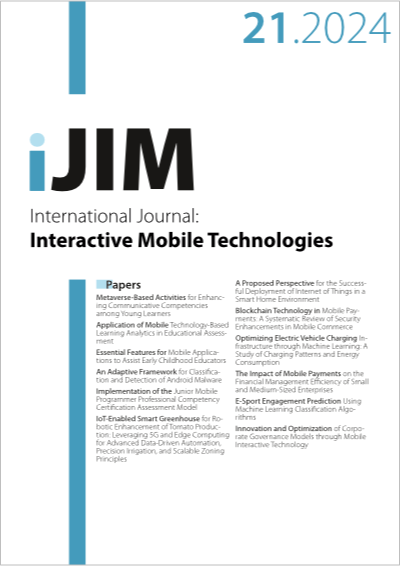Optimizing Electric Vehicle Charging Infrastructure through Machine Learning: A Study of Charging Patterns and Energy Consumption
DOI:
https://doi.org/10.3991/ijim.v18i21.50843Keywords:
Electric Vehicle (EV), Charging Station Location Analysis, Machine Learning (ML)Abstract
The rapid adoption of electric vehicles (EVs) has created a pressing need for efficient charging infrastructure. but challenges such as inconsistent demand and poor placement remain. An effective distribution of sufficient EV charging stations (CSs) is one of the major obstacles preventing the market penetration of EVs and the realization of a sustainable transportation system in urban areas. In this paper, a new machine learning technique is proposed in order to optimize the placement of EV charging stations (EVCSs) in metropolitan areas based on an energy consumption prediction model. A dataset from 148,136 charging transactions in Boulder, Colorado, is used with the proposed model. Key algorithms such as KNeighborsRegressor and RandomForestRegressor were incorporated to solve the placement problem. The analysis revealed significant demand fluctuations during peak commute hours, with the KNeighborsRegressor model demonstrating superior prediction accuracy. These insights can guide more effective infrastructure planning and resource allocation, ultimately enhancing the efficiency and user experience of EV charging networks and promoting sustainable urban transportation.
Downloads
Published
How to Cite
Issue
Section
License
Copyright (c) 2024 Ayoub Alsarhan, Athari Alnatsheh, Mohammad Aljaidi, Tuqa AL Makkawi, Mahmoud Aljamal, Tamam Alsarhan

This work is licensed under a Creative Commons Attribution 4.0 International License.



